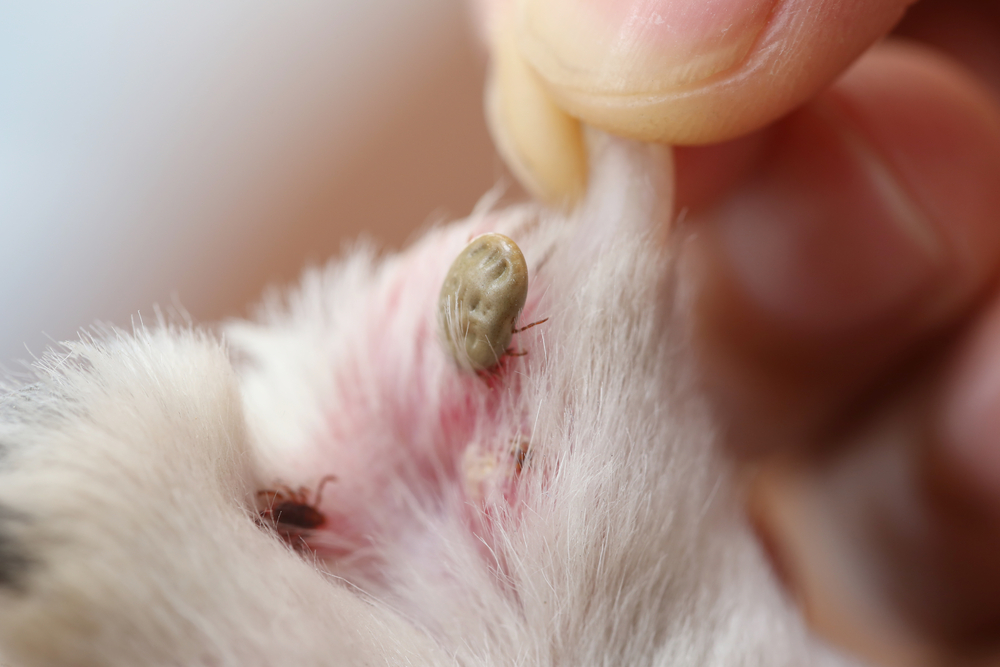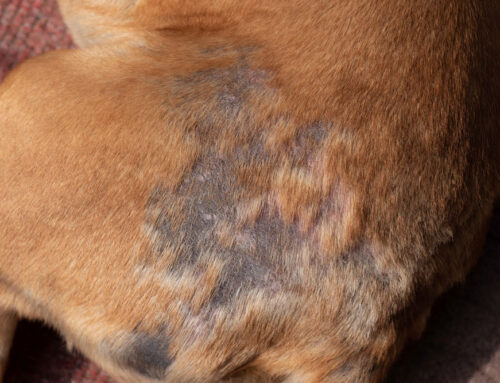You wish your pet could live forever but, unfortunately, this isn’t possible. However, what if you could take steps to add years to your pet’s life? The good news—you can! Our team at Tidmore Veterinary Hospital wants to help by providing do’s and don’ts that can prolong your pet’s life.
DO keep your pet at a healthy weight
Obesity is a common malady in pets in the United States, and a serious problem that causes significant health issues in affected pets. The extra fat tissue releases inflammatory mediators that cause chronic low grade inflammation throughout the body, and puts obese and overweight pets at higher risk for conditions such as arthritis, cancer, diabetes, and urinary tract disease. Ask our veterinary professionals if your pet’s weight is ideal, so we can formulate a healthy weight loss plan if they are carrying a few extra pounds. You can then monitor your pet’s weight regularly to track their progress if they need to lose weight, or ensure they remain at a healthy weight if their weight is appropriate.
- Weigh your pet — Use kitchen scales or pet scales to regularly weigh your pet.
- Body conditioning score (BCS) — Using a body conditioning score, in addition to weighing your pet regularly, is the best way to monitor your pet’s weight status.
DON’T feed your pet inappropriately
A healthy, balanced diet is crucial to your pet’s overall wellbeing. Our veterinary professionals can help you determine the best diet for your pet, and answer any questions. Once you have settled on an appropriate food for your pet, take steps to ensure they are receiving the right amount of food every day.
- Calculate the calories they need — Use the recommendation label on your pet’s food bag to get a general idea of how much food your pet needs in a day. You can also use calorie calculators to more accurately calculate your pet’s daily energy requirements, by considering your pet’s age, weight, spay or neuter status, and activity level.
- Measure their portions — Use measuring cups or food scales to accurately measure your pet’s food portion for every meal, to ensure they are receiving the correct amount.
DO bring your pet to Tidmore Veterinary Hospital for yearly wellness examinations
Your pet needs a full evaluation by a veterinary professional at least once a year, while senior pets should be seen at least every six months. Wellness visits allow us to diagnose issues affecting your pet in the early stages when they are easier to manage. Your pet may not exhibit outward signs of many conditions until they are in the advanced phases, making the issue hard to treat. Diseases that can quietly cause significant health problems for your pet include:
- Heart disease — Many pets show no signs in the early stages of heart disease, but listening to your pet’s heart can help us diagnose murmurs and arrhythmias that indicate a problem.
- Kidney and liver disease — Issues affecting your pet’s kidneys and liver can have life-threatening consequences for your pet, but signs aren’t always evident. Routine blood work performed during a wellness exam will diagnose these issues, allowing us to prepare an appropriate management plan.
- Diabetes — High blood sugar levels caused by diabetes can result in serious health problems for your pet. This condition can be diagnosed easily by routine blood work and urinalysis performed during a wellness exam.
DON’T neglect your pet’s dental health
You may think bad breath is normal for pets, but this can indicate serious dental health disease. If food particles aren’t removed from your pet’s mouth after they eat, bacteria accumulate, causing plaque buildup. Minerals in your pet’s saliva act on the plaque, and cause hardening, forming tartar. The bacteria can also invade your pet’s gum line and break down the structures that support your pet’s teeth. Additionally, the bacteria can enter your pet’s blood stream, damaging your pet’s organs, such as their heart, kidneys, and liver. Ways you can protect your pet’s dental health include:
- Professional dental cleanings — Bring your pet to Tidmore Veterinary Hospital for regular professional dental cleanings. These procedures thoroughly remove all bacteria from your pet’s teeth and under their gum line, to keep the pathogens from negatively impacting your pet’s health.
- Toothbrushing — Plaque begins to accumulate on your pet’s teeth about six hours after a dental cleaning, which means daily toothbrushing is imperative to keep your pet’s mouth healthy between cleanings.
DO provide year-round parasite prevention for your pet

Several parasites can transmit diseases and cause significant health problems for your pet, but you can protect them by providing year-round parasite prevention medication. Ensure your pet is protected against the following parasites:
- Gastrointestinal parasites — Parasites such as hookworms, whipworms, tapeworms, roundworms, giardia, and coccidia live in a pet’s gastrointestinal tract, leaching nutrients.
- Fleas — These parasites can ingest up to 15 times their body weight in blood, which can lead to anemia in some pets. In addition, many pets are allergic to the flea’s saliva, which can cause excessive itching and skin lesions that can easily become infected.
- Ticks — Ticks transmit diseases, such as Lyme disease, ehrlichiosis, and anaplasmosis, that can cause signs including lethargy, fever, joint pain, and weight loss. These diseases can be hard to eradicate once your pet is infected.
- Heartworms — Transmitted by mosquitoes, heartworms travel to your pet’s heart, causing serious, potentially life-threatening problems for your pet.
These simple do’s and don’ts will help keep your pet healthy, and hopefully add many years to their life. If you would like to schedule a wellness exam or professional dental cleaning for your pet, contact our American Animal Hospital Association (AAHA)-accredited Tidmore Veterinary Hospital team, so we can find a time that works for you.








Leave A Comment